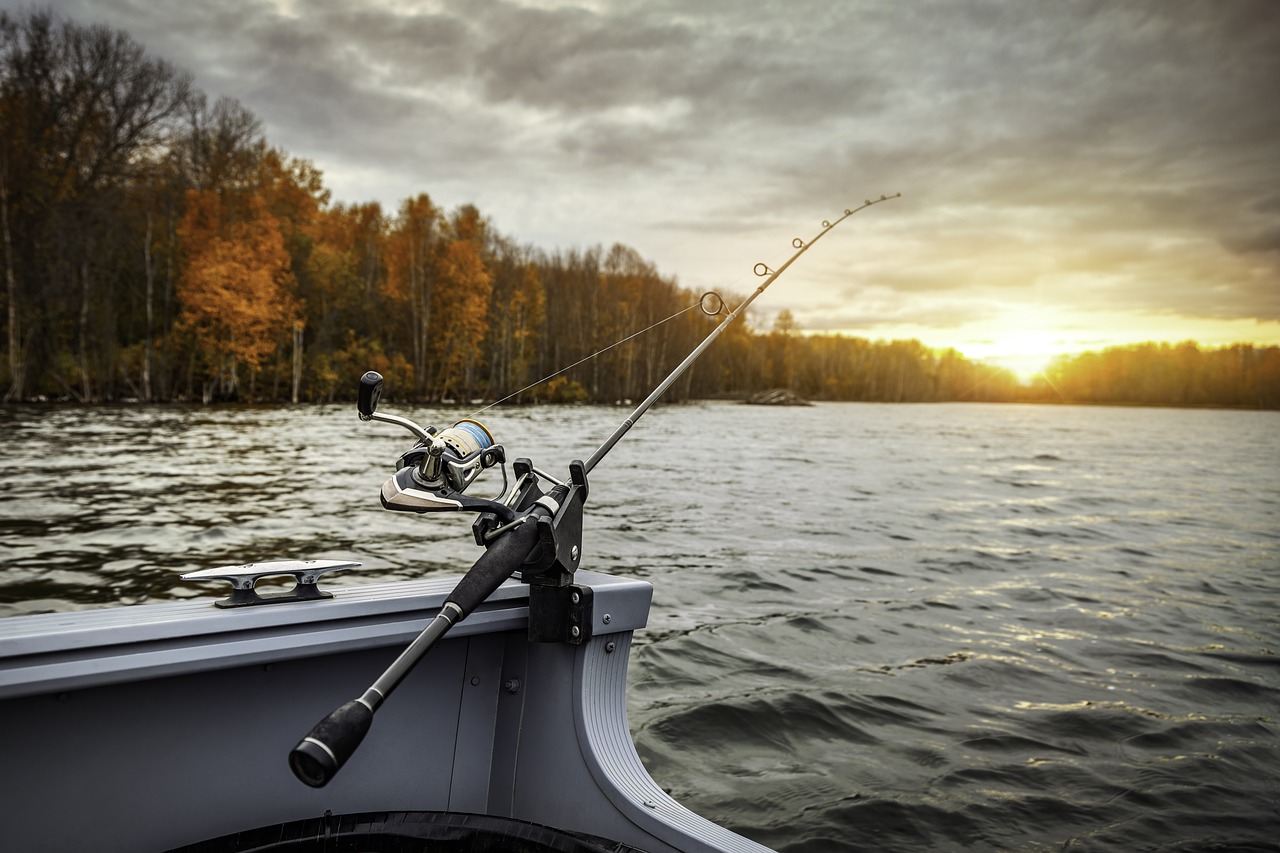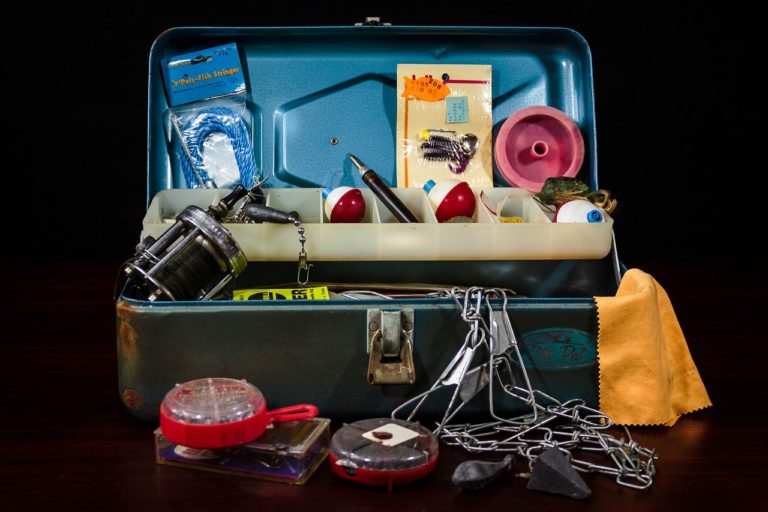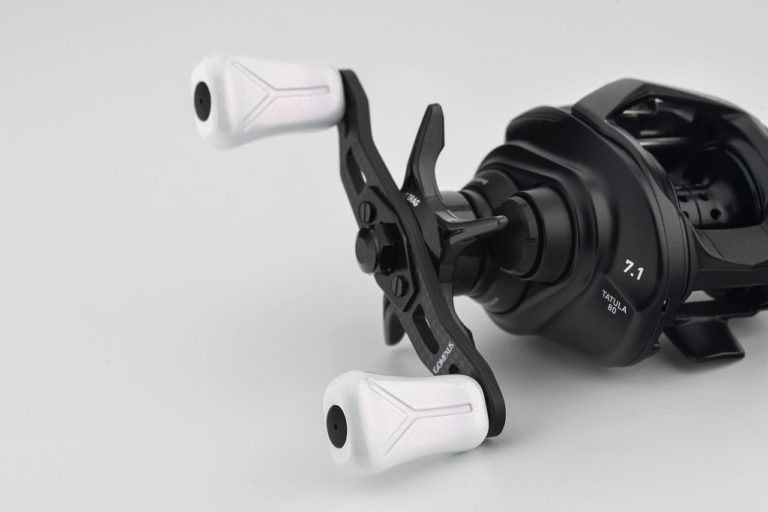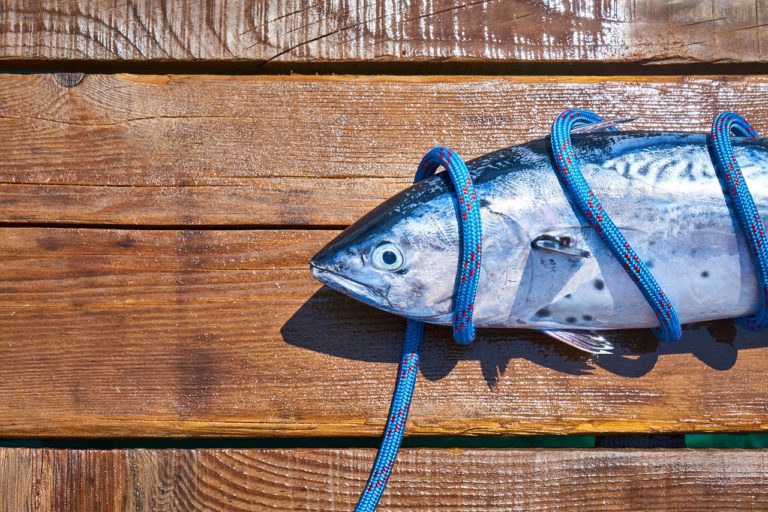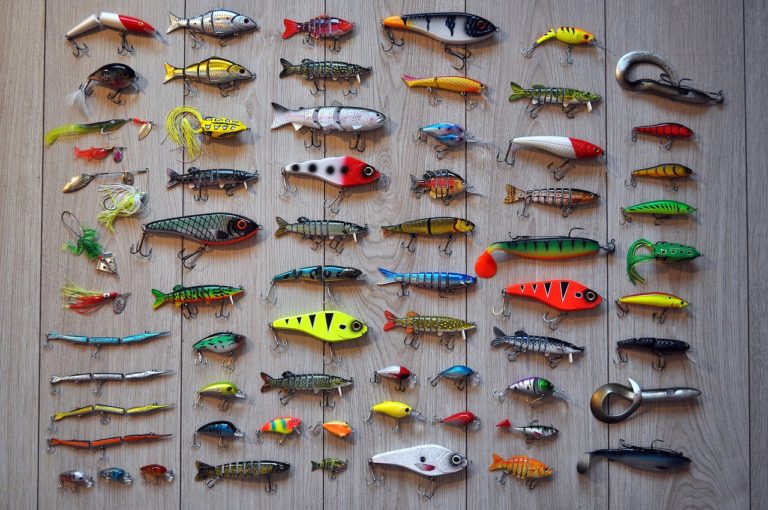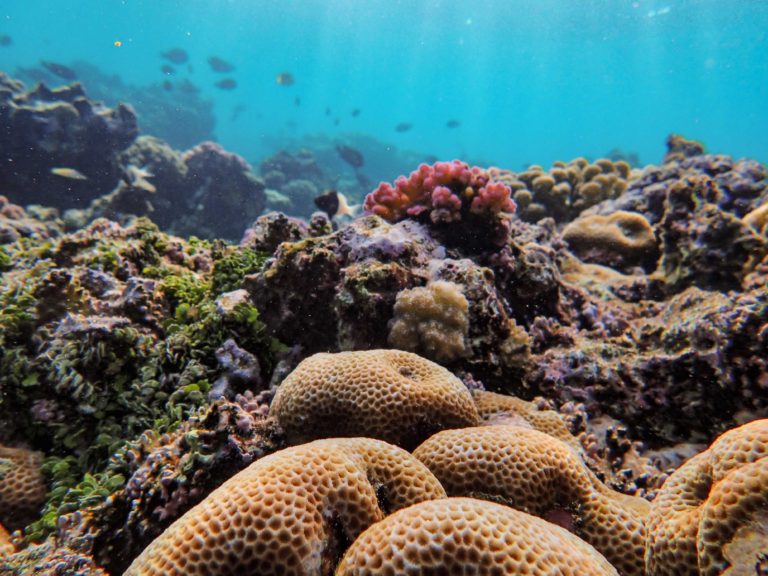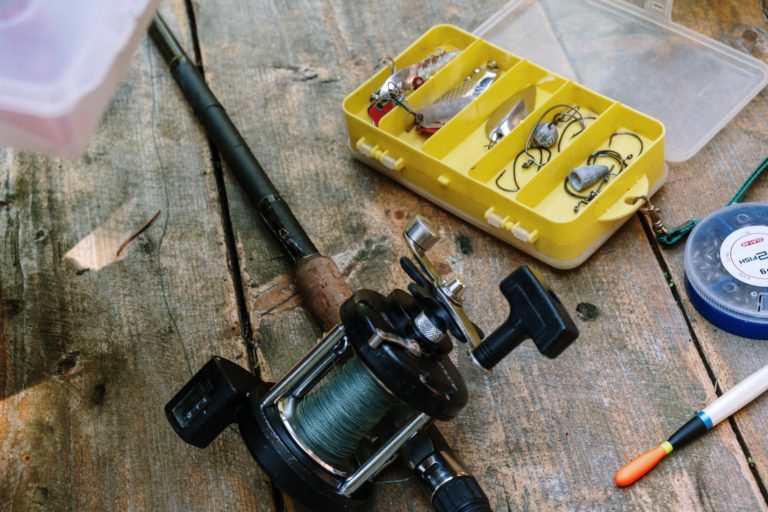Fishing Tips, Tricks, and Techniques to Catch More Fish
What are some of the best tips and tricks to improve my fishing skills and catch more fish?
Stop! Look no further than this all encompassing, ultimate list of fishing tips, tricks, and techniques to increase your skills, knowledge, and caught fish. Use this list as a guide and reference for your fishing hobby. Refer back to this list whenever you feel stuck or are looking for a new way to be a better angler.
Beginners
Just Start
Don’t get caught up in the details and just start fishing. The best way to start is by getting yourself a cheap rod and reel setup and go after pan fish like bluegill or sunfish. Find your local lake or pond and start catching some fish by using nightcrawlers or even rolling up bread into balls. These pan fish are super easy to catch and are a fantastic bait for larger fish. Check your local laws to determine if you can use panfish as live bait. Always buy a fishing license when required.
Use a Bobber and Change Depth
A bobber will allow you to change the depth of your bait and hook in the water. If you’re not catching any fish, change the depth of your bait. The ability to figure out the depth the fish are hanging out at is a vital skill to learn and is used by even the most advanced anglers.
Additionally, a bobber will be pulled under the water when a fish bites, allowing you to have a visual indication you may have a fish on the line or it’s time to set the hook. The bobber will also assist in setting the hook in the fish’s mouth.
Use a Rod Holder
A rod holder with a bobber is a great combination. The bobber, as mentioned in the previous section, will allow you to see when a fish bites. The rod holder will allow you to put down the rod and either relax, or grab another rod and reel to do some more active type fishing.
Use a Sinker
A sinker will allow your bait to get further down into the water column and will prevent it from moving too much in the current.
Change the Lure Size
If you’re not catching any fish, the lure might be either too big or too small. For example, a great trout spoon will generally be smaller, while largemouth bass can take down a larger one. If the lure isn’t large enough, the fish may not even put in the energy to check it out.
Get Needle Nose Pliers
Pliers are good for getting the hook out of the fish’s mouth. Many also have wire cutters on them.
Use a Pool Noodle
Hooks get stuck in everything. Cut up a pool noodle and insert the hooks into the foam to keep them from getting lost and puncturing yourself and your belongings.
Tips and Tricks for Anglers of Any Skill Level
Change Your Cast Spot
If you’re not catching any fish, try casting in different areas of the location you are at. Try casting in the shade or near some logs or brush in the water. Additionally, you can try casting further or closer to the shoreline. You can even cast along the shoreline on either side of you.
Modify Your Bait Fish
Cut the tail fin of your bait fish in a way which will make it more difficult for it to swim. This will cause more of a disturbance in the water and will make it easier for other fish to eat it.
Download an App
There are apps you can download where anglers post their catches and when and where they happened. Also download weather apps and apps that show you the times of high tide and low tide.
Target a Specific Fish
Do your research and find out the fish in your area and how to catch them. If you’re too broad you’ll end up catching very few fish.
Wait Slightly Longer Before Setting the Hook
If you find yourself attempting to set the hook with no success, try waiting a little longer before you do so. Waiting will allow the fish to take the bait and turn their head or give them enough time to get it further into their mouth.
Create Movement with the Fishing Rod
If you’re using a lure, give pulling motions with the rod to give the lure a bit more action in the water. This will create a slightly more erratic movement and may entice the fish even more.
Use a Heavier Lure
Sometimes it can be difficult to catch far. Using a heavier lure will allow you to reach further out into the water.
Change Locations
Don’t spend too much time in one location on the body of water. If you’ve tried fishing different depths and spots relative to the shoreline, try picking up your fishing stuff and going somewhere else. Don’t get too discouraged about the bait or lure you’re using. There simply might not be any fish at your location.
Learn Good Habits
Doing research and learning good habits is key to being proficient in any skill. Practice doesn’t make perfect, it makes permanent. Always be learning the best ways to fish and constantly do those things.
Use Polarized Sunglasses
Polarized sunglasses eliminate much of the glare from off the surface of the water. Without glare you’ll have an easier time seeing fish under the water.
Become an Expert
There is so much information out there and different types of fishing. Instead of getting lost in information overload, simply become an expert of what you have already. If you’re fishing for panfish at your local lake, become the absolute best fisherman at that lake for panfish. Learn the different depths and locations that provide the most bites. Learn what types of bait and lures those fish go after the most. Even the most advanced fisherman have a specific expertise they excel at. The things you learn from becoming the best at what you have will carry over to other types of fishing at different locations.
Use Proper Sized Gear
Sometimes you just simply need larger gear. If you’re targeting larger fish you will obviously need a stronger rod, reel, and line so the fish doesn’t break off your equipment. For beach fishing, you need a bigger rod so you can cast out far. Remember, when beach fishing you have to fight the waves and the wind so a long rod will help you in this situation.
With that being said, you don’t need to over do it. You will be surprised at the size of fish a smaller setup can catch. Additionally, catching smaller fish is more fun when you have a smaller setup because it gives you a better fight and challenge.
Remember, anglers are discouraged from using equipment which is too small because this means you will take more time to land the fish. This will tire out the fish and may end up killing the fish because it is unable to recover from the exhaustion. For more information on this, visit our article on the best way to catch and release fish.
Know the Fish Behavior Based on the Season
As temperatures fluctuate, so does the fish’s behavior. Learn how fish behave and where they will be located based on the time of year, weather, temperature, and more.
Go to a Natural Lake in a Relatively Remote Area
Lakes in the city are typically fished a lot which means the fish have experience with anglers. These more pressured fish will be less likely to go after your fake worm after they’ve just been hooked on 3 other worms which looked exactly the same.
Use Bottle Corks as Bobbers
The costs of fishing gear and tackle can add up quickly. Instead of throwing away your wine bottle corks, use them as bobbers. Additionally, you can use them to stow your hooks safely.
Bring Food and Water
Fishing can be a lot of work and time consuming. With our busy schedules, it can be difficult to find time to get out on the water. When we are finally able to do some fishing, having food and water will allow you to stay longer, at least until your next meal.
Get a New Rod and Reel for Different Lure
It can be time consuming to take off a lure and re-tie another one when you want to change what you are presenting to the fish. Instead, get a new setup with a different lure already tied on. This way you can just pick up the other rod when you want to change the lure you are throwing. When you want to change back to the other lure, simply pickup the other rod with that lure already attached.
Use Tape to Color Code Your Rods
Having different rods for different lures is great, but it can get confusing. Use tape to color code your rods so it’s easier for you to identify them.
Stay Organized
As you collect more fishing stuff, you will also need to keep it organized so you can find what you need easily. This will also help prevent your gear from getting rusty and tangles. Check out our article for the best organization tools for fishing.
Practice Tying Your Knots
Tying a knot in the comfort of your own home can be pretty easy. Conversely, tying a knot on a rocking boat with wet and cold hands while the wind is blowing strong is a different story. Get incredibly good at tying your favorite knots so when you’re out fishing you will spend less time setting up your rig.
Setup Your Rig Ahead of Time and Use a Rig Wrapper
If you have multiple setups and you rig them up ahead of time, you will be able to get right to fishing once you’re out on the water. Use a rig wrapper to avoid getting the hook snagged on something while you’re on your way to the water.
Use a Weedless Lure
If you’re reeling your lures through weeds and getting it stuck, switch to a weedless jig or use a weedless hook. If you want to make a rod and reel setup designated for weedless, use a bit heavier line so you can really pull the lure through strong.
Trout Fishing
Wear Something Dark and Match Your Surroundings
Trout are incredibly sensitive and can be easily scared off. Once they are aware of your presence they may stop feeding completely. Don’t wear bright colored clothes that will make you stand out. Remember, if you can see the trout, they can see you. However, sometimes they’ll see you before you ever have a chance of seeing them.
Be Quiet and Gentle in the Water
As previously mentioned, trout are superbly sensitive. If you splash around in the water or even step too hard walking up to the body of water, the fish will sense this and be spooked off.
Use a Scent
Trout love scented baits like garlic, shrimp, and corn. Adding a scent to your bait or lure is one way to get an edge when it comes to trout fishing. (add link here to a deeper dive article on trout or how to use baits and scents)
However, it is sometimes discouraged or even illegal to use baits and scents because it encouraged the fish to inhale the bait causing the hook to be stuck deep inside the fish.
Refer to our catch and release best practices article for more information:(Link to article.)
Use Bugs and Local Bait
Trout love to eat bugs which comprises of about 90% of their diet. Find the bugs, insects, and creepy crawlers from around the body of water you are fishing. If you can’t catch any live bait, use lures which mimic these insects.
Use Fluorocarbon Line
Fluorocarbon line is designed to be clear so you will have an easier time fooling the trout using this line. You can use a smaller diameter of line than monofilament because it is stronger.
Find Out When the Lakes are Stocked
Every state stocks their ponds and lakes at different times. Find out when the lakes nearest to you are stocked.
River Trout Typically Feed in Around 3 Feet of Water
You will have a more difficult time catching trout in deeper waters. If trout are present in depths closer to 10 feet, they’re likely resting or hiding and are unlikely to be feeding. This doesn’t mean you can’t catch trout at these depths, however there is less food at the bottom so they’re more likely to be closer to surface or in shallow water to feed.
Cast Ahead of Fish, Not Right on Top
Instead of casting right on top of fish, cast out ahead of them. Let the current carry your bait to the trout.
Bass Fishing
Take Advantage of the Wind
Wind can be quite annoying while fishing, making it more difficult than you would hope. It doesn’t have to be all bad, however. The movement of the water from the wind will disturb the surface of the water. This disturbance will help conceal you from the bass as well as make the fish more comfortable because they will feel hidden also. During these times switch to a faster technique and lure.
Match the Local Bait
Use bait that closely resembles the food bass are already eating. This is a concept which can be used for catching any type of fish.
Water Temperature
When the water warms up, the bass becomes more active. When the water is cool, the bass slows down. Match the activity of the bass by throwing a fast retrieve lure in the warmer water and slow down in the cooler water.
Fish the Cover
Cover can be anything from a stone, to a log, to a board deck. It doesn’t matter what it is, if it can provide cover, there is a better chance there is a bass around.
Pick a Spot and Cast A Lot
It will be easy to get frustrated while fishing for bass. Instead of switching out your lures every 15 casts, first do your research and find out a few lures that should work well based on the time of year. These lures should give you multiple options in terms of fishing style. You should be able to go fast, slow down, and deep dive as well. Stick with these lures and cast them a lot. Cast them in every area and even at every depth if possible. Once you’ve exhausted everything in the area you’re fishing, move to a new area and repeat the process. This will give you a ton of practice casting and retrieving the lure.
Saltwater Fishing
Look for the Birds
When predatory fish chase bait fish to the surface, birds take full advantage to try to get themselves a meal. When you see birds circling and diving you know there is a good chance there are some bait fish as well as predatory fish.
Look for the Water to Boil Over
As previously mentioned, predatory fish will chase bait fish to the surface. When this happens the water surface will be disturbed making it look like the water is boiling over.
Get Reels Rated for Saltwater
Not all reels are created equal. Make sure you get a reel that is rated to be used for saltwater fishing. This will ensure your equipment last longer and doesn’t get destroyed by the salt.
Wash Your Fishing Gear With Fresh Water
Simply washing your gear with fresh water will extend its life. Even if your reels are rated for saltwater, it’s still a good idea to wash them gently after every use. Avoid using a water pressure that is too high. This could force salt into deeper areas of the reel.
Don’t Feel Like You Need a Boat
Even if you don’t have a boat you can still get further out into the water. Find your local pier or jetty to get a better fishing spot. Make sure you alway practice safety precautions.
Many times fishermen on boats will end up close to the shore, fishing the same spots as onshore anglers. Yes, if you have a boat you can go further into deep sea territory, but there are still plenty options and opportunities onshore.
